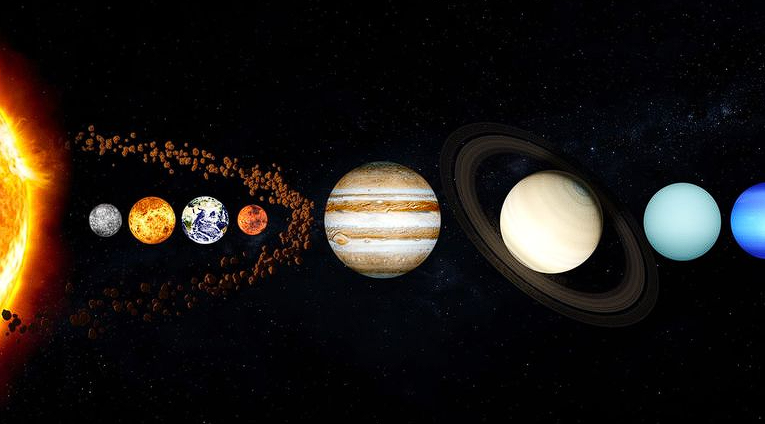A Brazilian Might Have Discovered a Hidden Planet in the Solar System.
Others are reading now
The Solar System might house more planets than previously thought. According to a new study by Patryk Sofia Lykawka, a graduate of the University of Vale do Rio dos Sinos (Unisinos) and currently a professor at Kindai University in Japan, there could exist a world more than 200 astronomical units from the Sun; each unit corresponds to the distance between the Earth and the Sun.
For the study, Patryk analyzed the orbits of various groups of trans-Neptunian objects (TNOs), which are found in the distant Kuiper Belt. There, he discovered curious properties: part of them had orbits beyond the gravitational effects of Neptune, while others had an orbital inclination of 45º. Finally, another group had extreme objects, with unusual orbits.
Next, he worked with simulations of the outer Solar System (where Jupiter, Saturn, Uranus, and Neptune are located) that included a possible Earth-like planet in varied orbits.
Also read
“I obtained results that could explain the orbital properties of the distant Kuiper Belt populations,” he explained.
“This suggests a vital role played by the planet in the formation of the Kuiper Belt,” he added.
With new simulations, Patryk realized that the outer system could not explain the properties of the objects.
“Thus, this study predicts the existence of a planet with a mass of approximately 1.5 to 3 Earths in the distant outer Solar System, situated beyond 200 astronomical units,” he said.
There are three possible orbits for this hypothetical world, all ranging from 200 to 800 astronomical units. According to the professor, the best results favor those from 200 to 500 and 200 to 800 astronomical units. If the discovery of such a world is confirmed, it could mean our system might once again have nine planets.
“Furthermore, just as occurred in 2006 with the reclassification of Pluto, we would need to refine the definition of ‘planet,’ since a massive planet located far beyond Neptune would likely belong to a new class,” observed Patryk. For the next steps, he plans to refine the results with new simulations.
The article with the study’s results was published in the scientific journal The Astronomical Journal.


